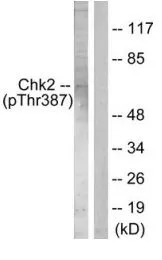![Various whole cell extracts (30 μg) were separated by 10% SDS-PAGE, and the membrane was blotted with Chk2 antibody [8F12] (GTX70295) diluted at 1:500. The HRP-conjugated anti-mouse IgG antibody (GTX213111-01) was used to detect the primary antibody, and the signal was developed with Trident ECL plus-Enhanced. Various whole cell extracts (30 μg) were separated by 10% SDS-PAGE, and the membrane was blotted with Chk2 antibody [8F12] (GTX70295) diluted at 1:500. The HRP-conjugated anti-mouse IgG antibody (GTX213111-01) was used to detect the primary antibody, and the signal was developed with Trident ECL plus-Enhanced.](https://www.genetex.com/upload/website/prouct_img/normal/GTX70295/GTX70295_44482_20211112_WB_w_23061221_684.webp)
Various whole cell extracts (30 μg) were separated by 10% SDS-PAGE, and the membrane was blotted with Chk2 antibody [8F12] (GTX70295) diluted at 1:500. The HRP-conjugated anti-mouse IgG antibody (GTX213111-01) was used to detect the primary antibody, and the signal was developed with Trident ECL plus-Enhanced.
Chk2 antibody [8F12]
GTX70295
ApplicationsImmunoFluorescence, Western Blot, ImmunoCytoChemistry
Product group Antibodies
ReactivityHuman, Mouse
TargetCHEK2
Overview
- SupplierGeneTex
- Product NameChk2 antibody [8F12]
- Delivery Days Customer9
- Application Supplier NoteWB: 1:500-1:3000. *Optimal dilutions/concentrations should be determined by the researcher.Not tested in other applications.
- ApplicationsImmunoFluorescence, Western Blot, ImmunoCytoChemistry
- CertificationResearch Use Only
- ClonalityMonoclonal
- Clone ID8F12
- Concentration1 mg/ml
- ConjugateUnconjugated
- Gene ID11200
- Target nameCHEK2
- Target descriptioncheckpoint kinase 2
- Target synonymsCDS1, CHK2, HuCds1, LFS2, PP1425, RAD53, TPDS4, hCds1, serine/threonine-protein kinase Chk2, CHK2 checkpoint homolog, cds1 homolog, checkpoint-like protein CHK2
- HostMouse
- IsotypeIgG1
- Protein IDO96017
- Protein NameSerine/threonine-protein kinase Chk2
- Scientific DescriptionIn response to DNA damage and replication blocks, cell cycle progression is halted through the control of critical cell cycle regulators. The protein encoded by this gene is a cell cycle checkpoint regulator and putative tumor suppressor. It contains a forkhead-associated protein interaction domain essential for activation in response to DNA damage and is rapidly phosphorylated in response to replication blocks and DNA damage. When activated, the encoded protein is known to inhibit CDC25C phosphatase, preventing entry into mitosis, and has been shown to stabilize the tumor suppressor protein p53, leading to cell cycle arrest in G1. In addition, this protein interacts with and phosphorylates BRCA1, allowing BRCA1 to restore survival after DNA damage. Mutations in this gene have been linked with Li-Fraumeni syndrome, a highly penetrant familial cancer phenotype usually associated with inherited mutations in TP53. Also, mutations in this gene are thought to confer a predisposition to sarcomas, breast cancer, and brain tumors. This nuclear protein is a member of the CDS1 subfamily of serine/threonine protein kinases. Several transcript variants encoding different isoforms have been found for this gene. [provided by RefSeq, Apr 2012]
- ReactivityHuman, Mouse
- Storage Instruction-20°C or -80°C,2°C to 8°C
- UNSPSC12352203
References
- Liu X, Jiang Y, Nowak B, et al. Repair of DNA damage induced by the novel nucleoside analogue CNDAG through homologous recombination. Cancer Chemother Pharmacol. 2020,85(4):661-672. doi: 10.1007/s00280-020-04035-xRead this paper
- Park SH, Kang N, Song E, et al. ATAD5 promotes replication restart by regulating RAD51 and PCNA in response to replication stress. Nat Commun. 2019,10(1):5718. doi: 10.1038/s41467-019-13667-4Read this paper
- Johnson TE, Lee JH, Myler LR, et al. Homeodomain Proteins Directly Regulate ATM Kinase Activity. Cell Rep. 2018,24(6):1471-1483. doi: 10.1016/j.celrep.2018.06.089Read this paper
- Lee JH, Mand MR, Kao CH, et al. ATM directs DNA damage responses and proteostasis via genetically separable pathways. Sci Signal. 2018,11(512). doi: 10.1126/scisignal.aan5598Read this paper
- Lee JH, Guo Z, Myler LR, et al. Direct activation of ATM by resveratrol under oxidizing conditions. PLoS One. 2014,9(6):e97969. doi: 10.1371/journal.pone.0097969Read this paper
- Chen HM, Chang FR, Hsieh YC, et al. A novel synthetic protoapigenone analogue, WYC02-9, induces DNA damage and apoptosis in DU145 prostate cancer cells through generation of reactive oxygen species. Free Radic Biol Med. 2011,50(9):1151-62. doi: 10.1016/j.freeradbiomed.2011.01.015Read this paper

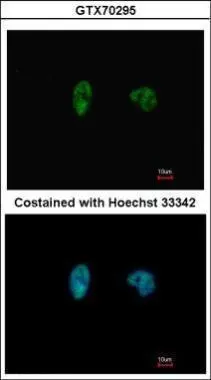
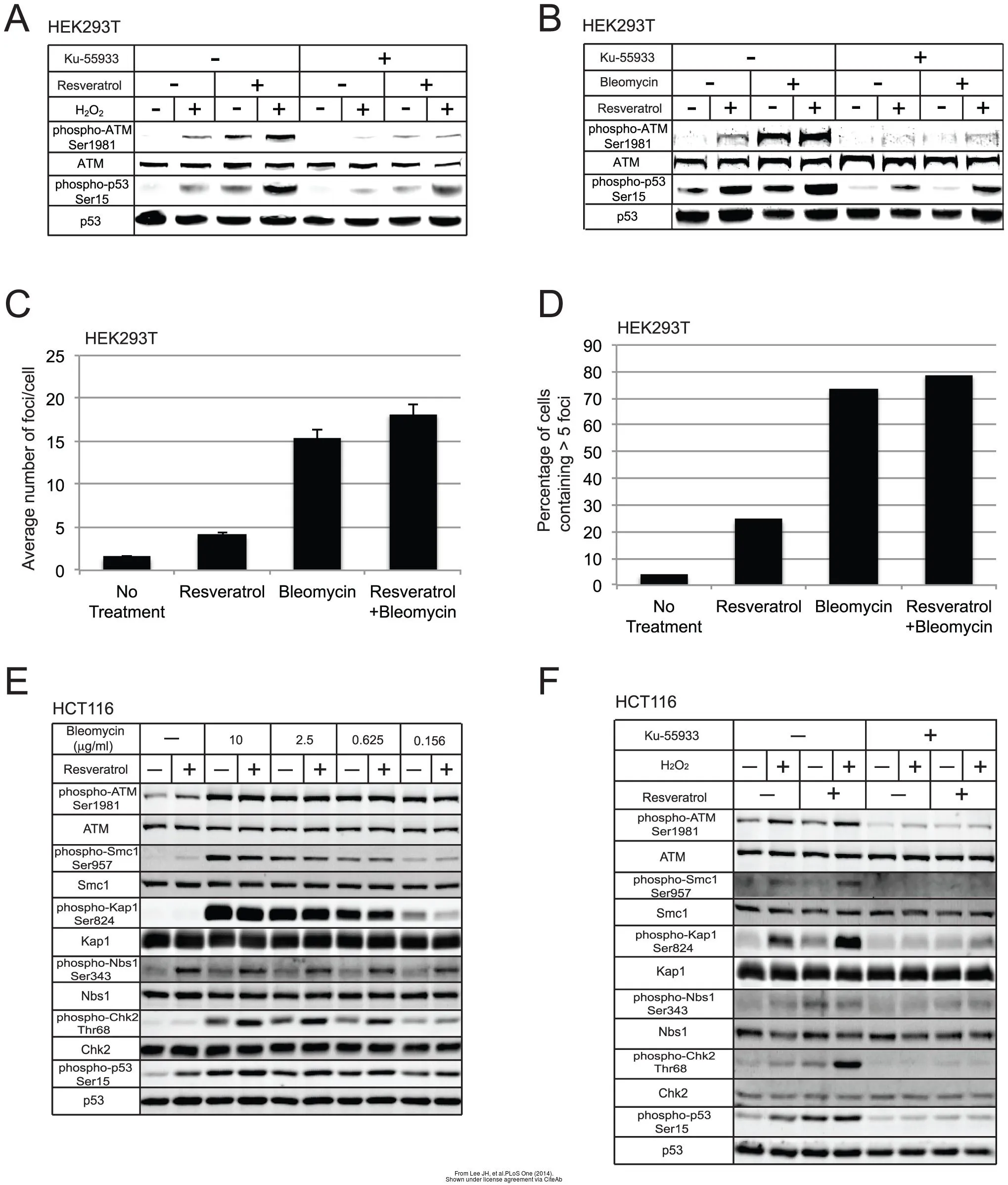


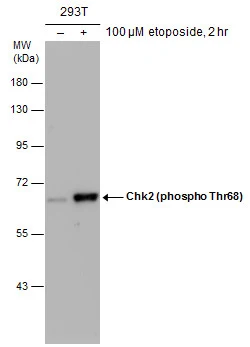
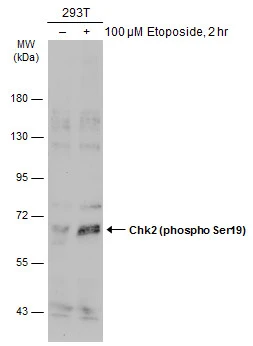
![Various whole cell extracts (30 μg) were separated by 7.5% SDS-PAGE, and the membrane was blotted with Chk2 antibody [GT1148] (GTX00927) diluted at 1:500. The HRP-conjugated anti-rabbit IgG antibody (GTX213110-01) was used to detect the primary antibody.](https://www.genetex.com/upload/website/prouct_img/normal/GTX00927/GTX00927_40000000022_20200306_WB_w_23053121_578.webp)
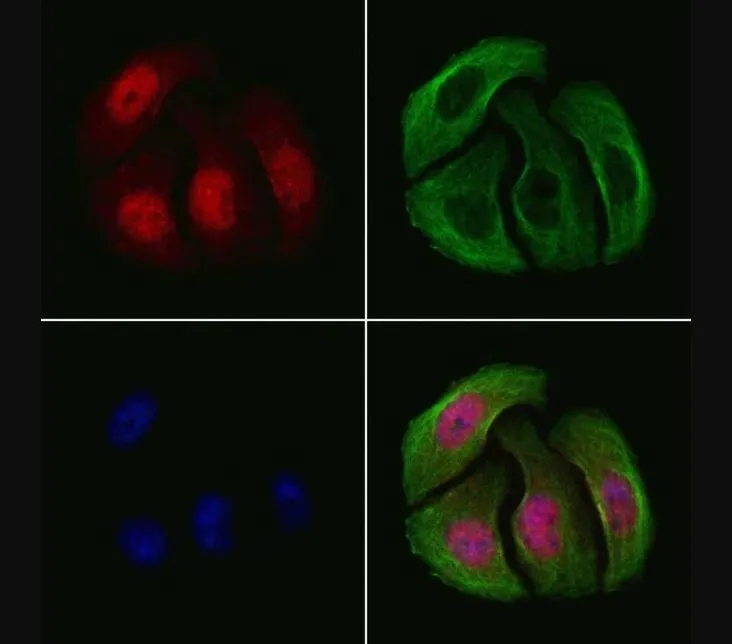
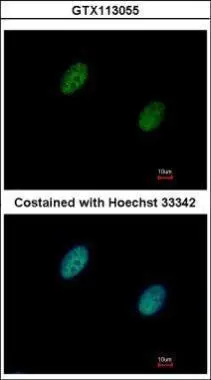
![Wild-type (WT) and Chk2 knockout (KO) HeLa cell extracts (30 μg) were separated by 7.5% SDS-PAGE, and the membrane was blotted with Chk2 antibody [4B8] (GTX70100) diluted at 1:500. The HRP-conjugated anti-mouse IgG antibody (GTX213111-01) was used to detect the primary antibody.](https://www.genetex.com/upload/website/prouct_img/normal/GTX70100/GTX70100_42198_20170309_WB_KO_watermark_w_23061221_245.webp)
